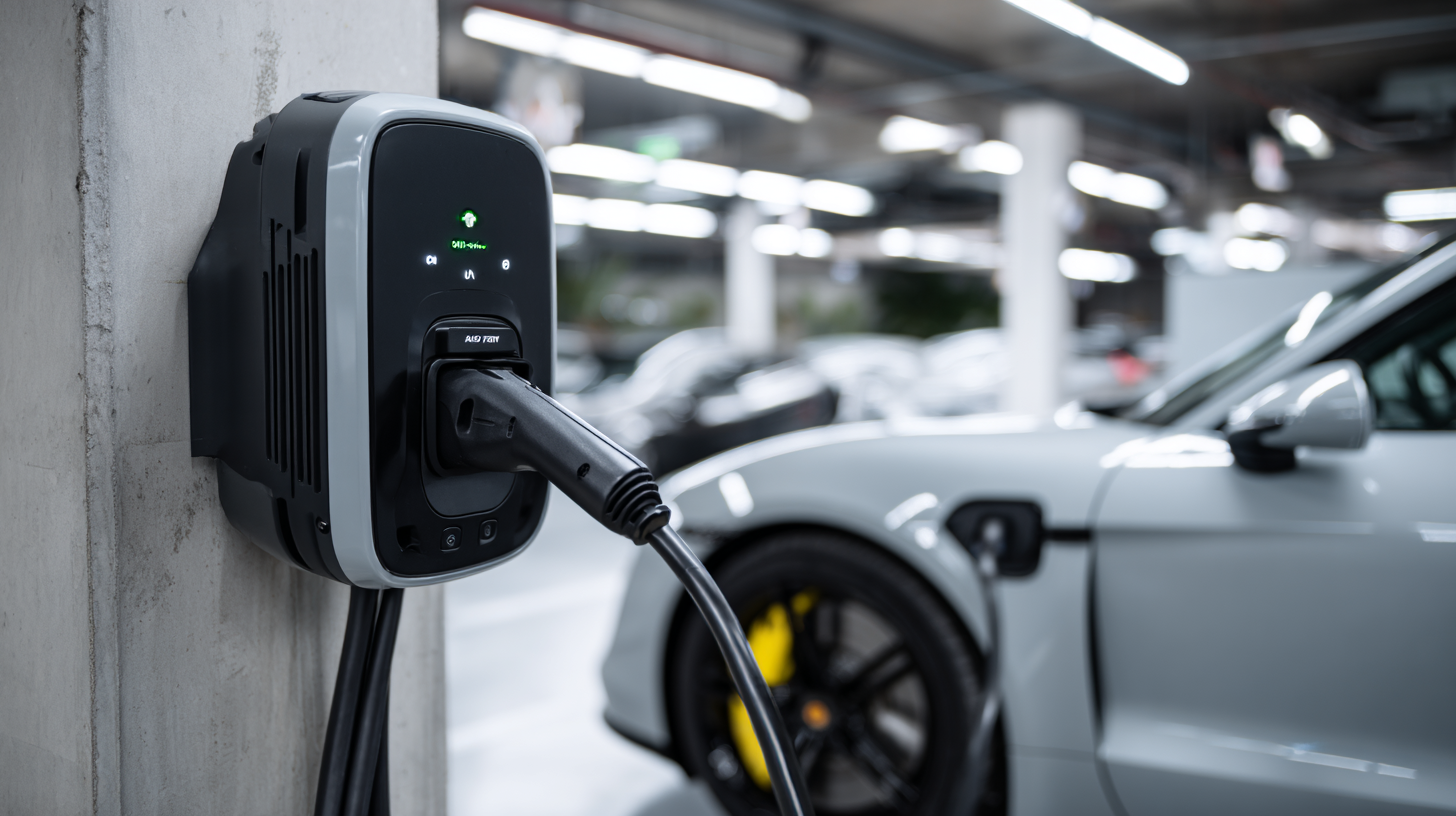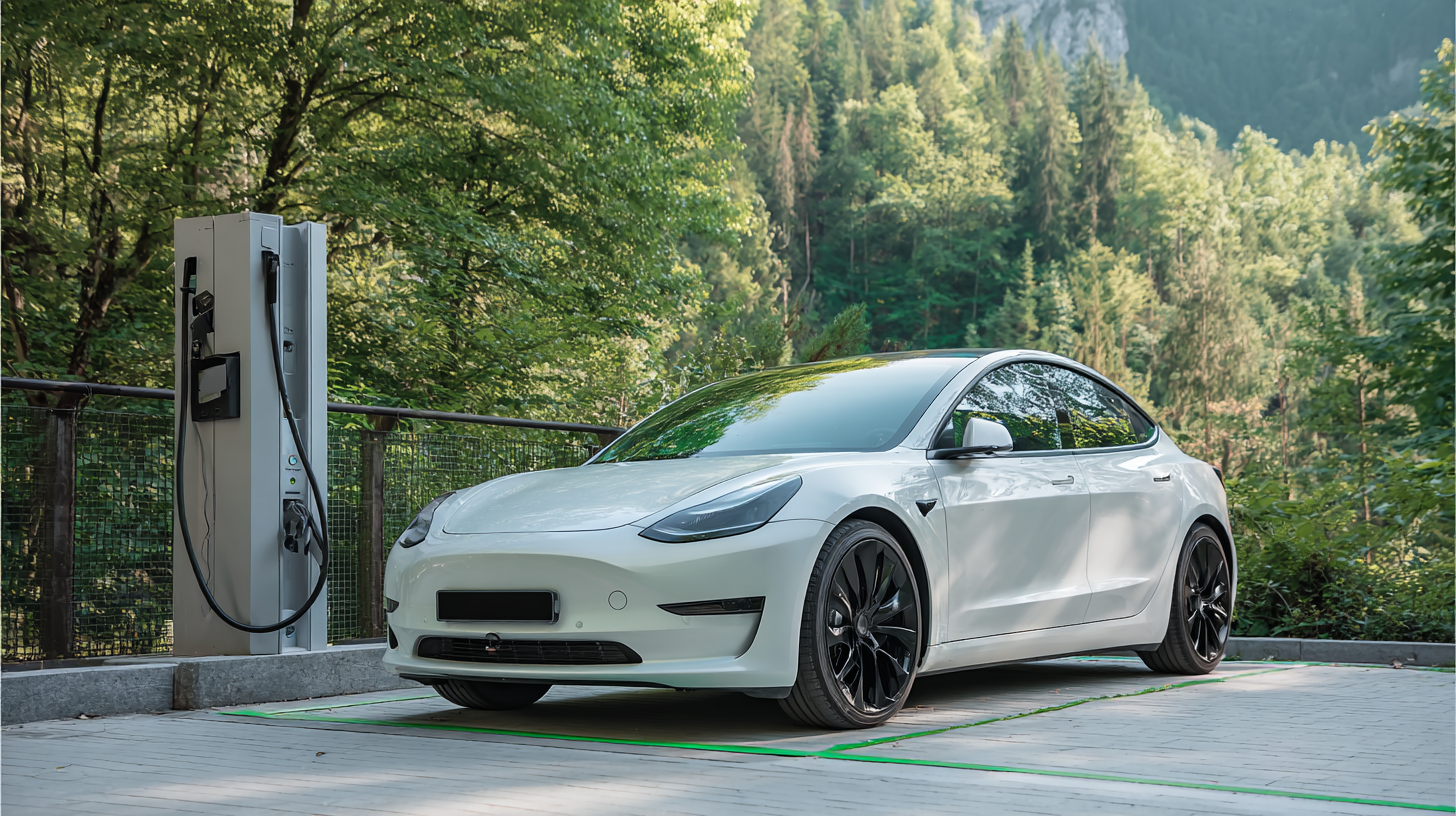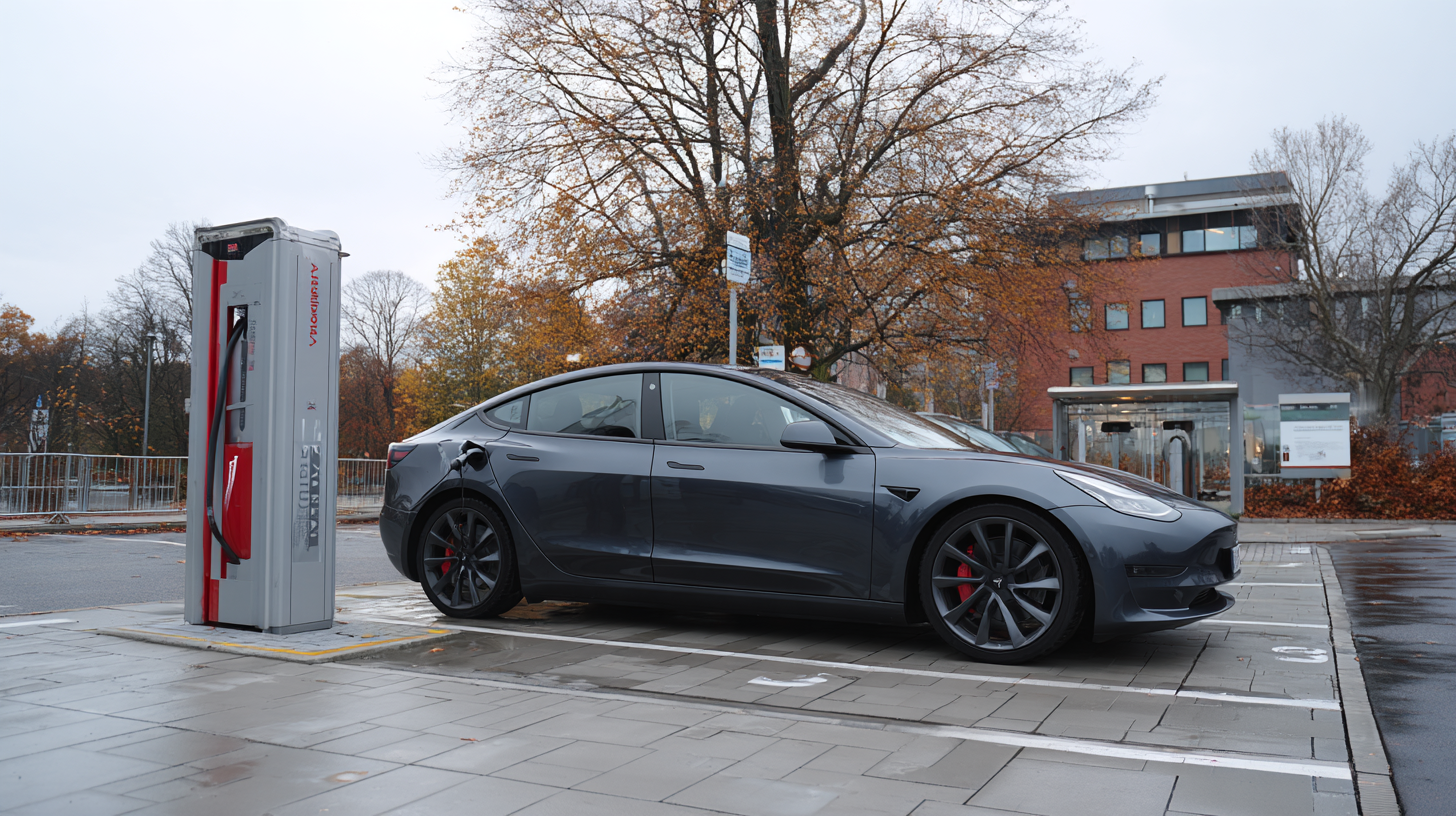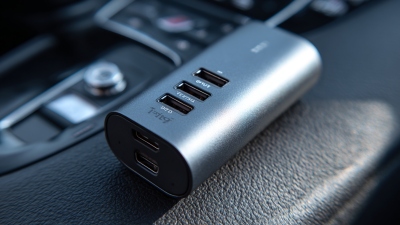
Wall Mounting EV Charge Station
5 Essential Tips for Choosing the Best Type 1 Ev Charger
As electric vehicles (EVs) continue to gain traction worldwide, the demand for reliable and efficient charging solutions is more critical than ever. Specifically, the Type 1 EV Charger is a popular choice among electric vehicle owners, particularly in regions like North America where the SAE J1772 standard is predominant. Industry reports indicate that the global EV charging market is expected to grow at a compound annual growth rate (CAGR) of over 30% from 2021 to 2028, underscoring the urgent need for consumers to carefully consider their charging options.

Selecting the best Type 1 EV Charger involves understanding various factors, including charging speed, compatibility with different vehicle models, installation requirements, and additional features such as smart charging capabilities. With such rapid advancements in technology and a growing market, knowing how to navigate the selection process can significantly enhance the overall EV ownership experience.
Understanding Different Types of Type 1 EV Chargers Available in the Market
When selecting the best Type 1 EV charger, understanding the different options available in the market is crucial. Recent studies reveal significant insights into electric vehicle (EV) usage, highlighting that a large portion of users (64%) live within two miles of a public charging station. This proximity affects their perception of EVs, underscoring the importance of accessible charging infrastructure. Therefore, when choosing your charger, consider the availability of Type 1 connectors compatible with various EV models, as well as the charging speed that aligns with your routine.
Tip 1: Assess your charging needs based on your daily driving patterns. If you frequently use your EV for long commutes, investing in a higher-powered charger can significantly reduce charging times and improve convenience.
Furthermore, understanding the different charging technologies and compatibility issues is paramount. Many EVs utilize different chargers, and while Type 1 is common, advancements in charging infrastructure can present a blend of options, such as faster charging capabilities at public stations.
Tip 2: Research the reliability and reputation of the charger brand. Opt for models that offer safety features, such as surge protection devices, which safeguard against electrical fluctuations, contributing to longevity and performance stability.

Evaluating Charging Speed: How to Match Your EV Needs with Charger Output
When choosing the best Type 1 EV charger, one primary factor to consider is the charging speed, ensuring it aligns with your electric vehicle (EV) needs. The growing demand for EVs has driven significant market growth; for instance, the North American DC charger market is expected to increase from $1.04 billion in 2025 to $26.15 billion by 2040, with an impressive annual growth rate of 24.0%. This surge highlights the importance of selecting a charger that offers adequate power output to meet your specific driving habits.

Tip: Look for a charger with sufficient kilowatt (kW) output to minimize charging time. For typical Type 1 chargers, outputs range from 1.3 kW to 7.2 kW. If you frequently use your vehicle for long trips, investing in a higher-output charger can significantly reduce downtime. Additionally, consider the compatibility with charging stations, as the market sees a growing trend in fast charging solutions.
Evaluating your charging requirements in conjunction with the latest market insights is essential. The market for 800V EV charging stations alone is expected to grow from $150 million in 2022 to $720 million by 2030, indicating a robust future for faster charging technologies. Ensure you choose a charger that can not only support your current vehicle but also adapt to future advancements in EV technology.
Assessing Installation Requirements for Your Type 1 EV Charger
When assessing installation requirements for your Type 1 EV charger, the first step is to evaluate your home’s electrical infrastructure. Ensure that your existing electrical panel can support additional load from the charger. Most Type 1 chargers require a dedicated circuit to prevent overload and ensure safe, efficient charging. Consulting with a licensed electrician is crucial to determine if any upgrades or changes are needed to your current system.
Next, consider the location of your charger installation. It should be easily accessible for your vehicle while also considering the proximity to your electrical panel. Ideally, the installation site should be sheltered from the elements, which can help prolong the lifespan of both the charger and the vehicle’s charging port. Additionally, keep local regulations and any potential permitting requirements in mind, as some areas may have specific codes that govern EV charger installations. Planning these aspects carefully will set the stage for a smooth charging experience.
5 Essential Tips for Choosing the Best Type 1 EV Charger - Assessing Installation Requirements for Your Type 1 EV Charger
| Tip | Description | Installation Requirements | Estimated Cost ($) |
|---|---|---|---|
| Understand Your EV | Identify the specific charging requirements and features of your Type 1 EV. | Compatibility with charging levels and voltage. | 50 - 100 |
| Consider Location | Choose a charger location that is convenient and accessible. | Space for installation, clearance, and proximity to power source. | 100 - 200 |
| Check Electrical System | Ensure your home's electrical system can handle the charger. | Electrical panel capacity and circuit specifications. | 150 - 300 |
| Select Charging Speed | Determine the charging speed suitable for your needs. | Level 1 or Level 2 charger considerations. | 300 - 600 |
| Look for Safety Features | Select chargers with appropriate safety certifications. | Ground fault protection and overcurrent protection. | 200 - 400 |
Exploring Smart Features: What to Look for in an Advanced Charger
When selecting an advanced Type 1 EV charger, smart features play a pivotal role in enhancing the user experience and optimizing charging efficiency. One of the foremost features to consider is smart connectivity. Chargers that offer Wi-Fi or Bluetooth capabilities allow users to monitor and control their charging sessions remotely through a smartphone app. This enables you to start, stop, or schedule charging during off-peak hours to take advantage of lower electricity rates, thus saving money.
Another essential smart feature is real-time energy consumption tracking. This functionality not only helps in understanding your vehicle’s charging patterns but also aids in managing overall energy usage. Some chargers even integrate with smart home systems, allowing for automated controls based on energy availability or electricity pricing. Additionally, features like automated software updates ensure your charger remains compliant with the latest technologies and efficiency standards, providing peace of mind and longevity. By prioritizing these smart functionalities, you can enhance both your EV charging experience and the sustainability of your energy consumption.
Comparison of Smart Features in Type 1 EV Chargers
Budgeting for Your Type 1 EV Charger: Cost Considerations and Long-Term Savings
When budgeting for a Type 1 EV charger, it’s crucial to consider both the upfront costs and potential long-term savings. Initial prices for EV chargers can range widely based on features and installation requirements, averaging between $500 to $1,500 for a quality unit, not including installation. However, the financial landscape is shifting. A recent report indicates that by 2025, owning an electric vehicle (EV) could become cheaper than driving a gas-powered car for those covering 10,000 to 12,000 miles annually, largely due to available tax credits and overall savings on fuel and maintenance.
In addition to the purchase price, homeowners should account for electricity rates when calculating the long-term costs of an EV charger. Studies show that the cost per mile for electrically powered vehicles is consistently lower than their gasoline counterparts. The ongoing trend points toward significant savings on fuel since the cost of electricity can often be as low as $0.13 per kWh, compared to gas prices that fluctuate much more unpredictably. Furthermore, considering the current market trends and government incentives aimed at boosting EV adoption, investing in a Type 1 charger is not just a cost; it's a step toward sustainability and long-term savings.
Related Posts
-

7 Compelling Reasons to Choose Home Wall Ev Charge Station for Your Business
-

Unlocking the Advantages of Wall Ev Charge Station for Sustainable Energy Solutions
-

How to Maximize Your EV's Potential with the Ac V2l Adaptor: A Comprehensive Guide
-

The Ultimate Guide to Choosing the Best Ac Portable Ev Charger for Your Electric Vehicle Needs
-

7 Compelling Reasons to Choose an Ac Portable Ev Charger for Your Electric Vehicle
-

Noteworthy Variants of AC EV Charging Cables You Should Consider

